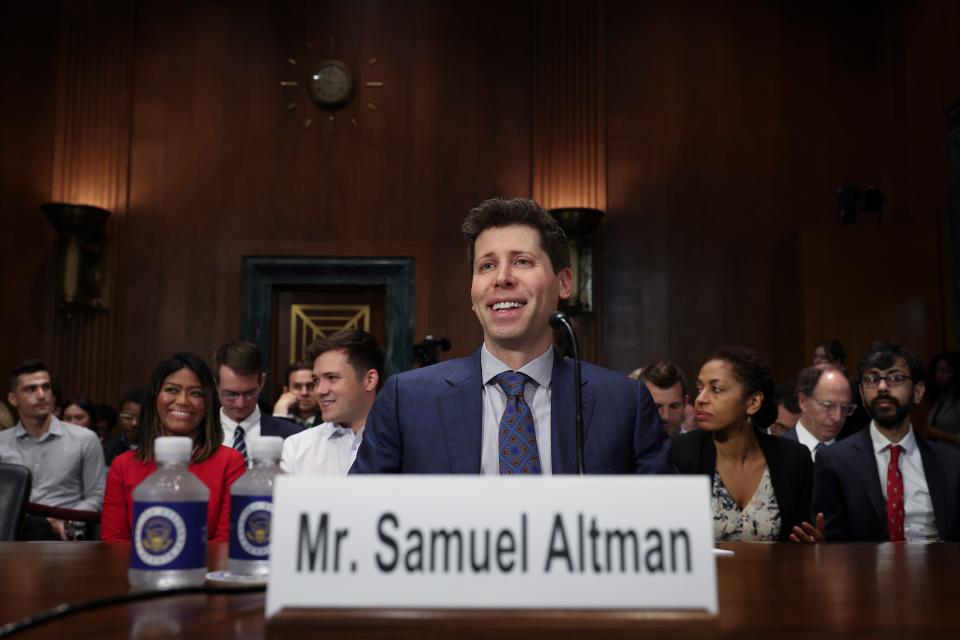Don’t let artificial intelligence create alternate reality | Opinion
Artificial intelligence is the latest in the increasingly rapid stream of feared “existential threats” to American society. The virtual horses are out of the imaginary barn and into the corral. There’s widespread fear of their escaping to the hills.
Opportunity and concern
The impact is already becoming widespread. Opportunity abounds. Concern is merited. Panic is not. AI is already enabling better decisions about constituents and customers. It’s on the verge of safer driving as faster processors delve into mounds of data on human reactions with their streets, fellow drivers, pedestrians, bicyclists and stop signs. AI is helping brains connect to paralyzed limbs.
But all is not good in this technology paradise. Students are farming out assignments to ever-more-able chatbots. Former Google CEO Eric Schmidt recently warned that “Artificial intelligence could pose existential risks and governments need to know how to make sure the technology is not misused by evil people,” Other tech leaders are also uneasy.

The union representing striking TV writers is attempting to negotiate regulation that limits the use of content produced by AI. Advanced robotics and simulation of human learning could lead to the luckiest (maybe) among us living for thousands of years. Elon Musk warns that some proponents of AI have just that in mind. The search for the fountain of youth is never ending.
Many among our species haven’t escaped the need to dominate others. Every advance brings the probability of horrible outcomes. This has been the case with new technology since the printing press, which revolutionized the world, freeing the distribution of knowledge beyond the very few. However it eventually led to the distribution of "Mein Kampf." The wonder of moving-picture technology eventually led to Leni Riefenstahl's "Triumph of the Will,” which glorified Hitler and the Nazi Party.
Hear more Tennessee voices: Get the weekly opinion newsletter for insightful and thought-provoking columns.
We must understand the consequences and deal with them
There isn’t any way to stop the growth of artificial intelligence. There are too many actors in too many places pursuing too many forays. But let’s understand the consequences and find the best ways to deal with them. We’ve not figured out how to mitigate the worst outcomes from social media. Many potentially horrifying AI scenarios are extensions of that failure.
An immediate danger is instant construction of what appear to be credible alternative realities in one or two dimensions. This comes from great progress in programming speech recognition and speech creation. Just play a minute with Alexa to get the idea. Samuel A. Jackson can deliver your weather report. It’s not that much harder to work from existing video to simulate an image as compelling as the sound of a sampled voice.
'Wag the Dog' faster and cheaper
Re-creating artificial reality on screen for political advantage isn’t new. In the 1997 movie "Wag the Dog," political operatives manufactured an imaginary war, presented from a sound set, to distract from a presidential scandal. That imaginary war took a ton of work and conspiracy among many actors. No more. AI takes such potential for serious mischief to light speed at far less cost.
The world of screens is limited to two dimensions. We’ve lived in three for all but the latest sliver of human history. When we restrict ourselves to two, not only do we sacrifice depth. We enable construction of sound and sight on the screen that easily mimics reality as we have evolved to witness it over the eons.
The COVID-19 pandemic brought about life and death by screens – Zoom, smartphone and tablet. Sounds and images on screens have become the reality rather than the mere reflection of it. AI can control this world. It will have a much tougher time controlling the extra dimensions of personal interaction, where emotions and greater authenticity dwell.
There’s no magic bullet for AI containment. Take advantage of the benefits and be thoughtful and assertive in mitigating the inevitable dangers. Trust your senses in real time; interact in person when possible. Don’t spend too much time with your VR headset. Don’t let artificial intelligence create alternate reality.
William Lyons is Director of Policy Partnerships for the Howard Baker Jr. Center for Public Policy and Professor Emeritus of Political Science at the University of Tennessee. He also served as Chief Policy Officer for Knoxville Mayors Bill Haslam, Daniel Brown and Madeline Rogero.
The views and opinions expressed are those of the author and do not necessarily reflect the official policy or position of the Howard Baker Jr. Center for Public Policy or the University of Tennessee.
This article originally appeared on Knoxville News Sentinel: Opinion: Don’t let artificial intelligence create alternate reality

